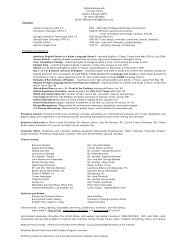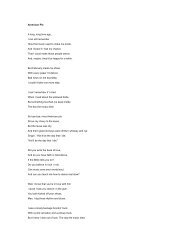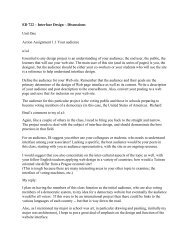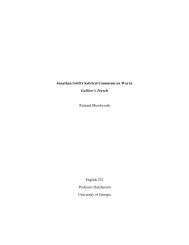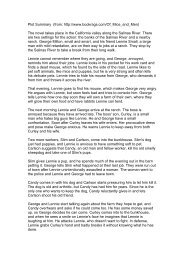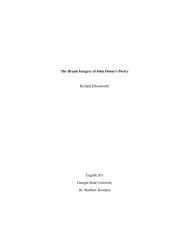Research Methodology, pdf - 2B2B.org
Research Methodology, pdf - 2B2B.org
Research Methodology, pdf - 2B2B.org
Create successful ePaper yourself
Turn your PDF publications into a flip-book with our unique Google optimized e-Paper software.
As I mentioned, I thought the most interesting subject for me to write about is the growing trend<br />
in the world toward direct democracy through online voting and also the role of educational<br />
institutions in its implementation (the other idea, based on ESL classes in the world, I think has<br />
been written enough about -- I don't think we need, for example, another paper proving that,<br />
fortunately for all of the native English speakers, English is becoming the international language<br />
for world communication) . Even though direct voting via the Internet using computer<br />
technology is a relatively new field as far as history is concerned, and the amount of studies<br />
might be less than in other fields, there are still a significant amount of studies, either qualitative<br />
or quantitative, that have been done that I can review and I can also propose some other possible<br />
experiments that can be conducted (research methodology section of the paper). Also, I like the<br />
idea of getting in on the (relative) ground floor, so to speak.<br />
For my course paper I have thought about adding to the idea of the Action Plan paper which I did<br />
for ED 5004 which involves direct democracy and this could be done with both the K-12 and the<br />
post-secondary (as well as continuing education) in mind. The other possibility is something<br />
involving ESL -- so I need to decide on them. I could possibly even mix them together in a<br />
combined, coordinated and interconnected project. I'll keep you informed as other ideas come to<br />
mind. Please let me know if you, or anyone, has any ideas about a possible project<br />
Direct democracy is basically the public voting directly on issues rather than through elected<br />
representatives who can, after elected, vote any way they choose.<br />
In Adult Education for Social Change: From Center Stage to the Wings and Back Again, Thomas<br />
Heaney views adult education as participatory and as a tool for social change and where<br />
educational progressivism is the contemporay approach to educating the public. " 'Adult<br />
education turns out to be the most reliable instrument for social actionists' since it assures that<br />
any action undertaken would be authentically democratic" (Brookfield, 1984). Eduard<br />
Lindeman, as influenced by John Dewey, considers adult education to be intertwined with<br />
democracy, social action, and control by people over their daily lives. To Lindeman, adult<br />
education equals social change, a method to create good and productive citizens. Even if<br />
education is viewed as a "great selector" rather than a "great equalizer", each person can, as a<br />
result of education, find their niche, based on their abilities and merits, within a democratic<br />
society. The concept of using the educational system to implement a direct democracy is closely<br />
connected with the ideas expressed by Heaney, Miles Horton, Paulo Freire, and Jack Mezirow<br />
since their approach is to empower the populace through education in order to create a<br />
democratic society. Since it is necessary to have an educated public in order to have democracy<br />
function efficiently, democracy is dependent on the educational system to survive and prosper.<br />
The study would involve both qualitative and quantitative aspects. The qualitative and more<br />
subjective side of the research would involve a brief history of democracy, a brief discussion of<br />
the definitions of and philosophy of democracy, the use of the educational system to prepare<br />
learners for the use of direct democracy, and the contemporary uses of direct democracy in<br />
countries such as Switzwerland and Sweden. The quantitative and more objective side of the<br />
study would involve statistics and the numbers of people, governments, and institutions presently<br />
using these concepts, how they were implemented, and the reliability and effectiveness of those<br />
procedures.



